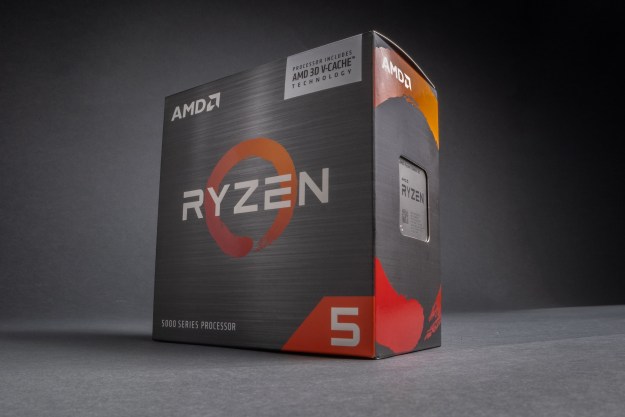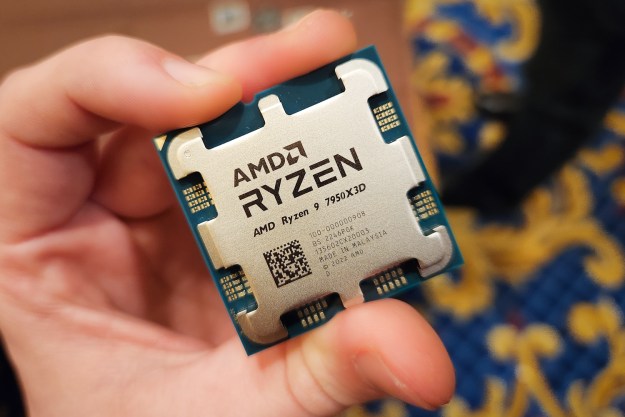Following Russia’s invasion of Ukraine, chip-maker AMD is now the latest global company to sever ties with Russia. The maker of Radeon GPUs and Ryzen CPUs announced that it is halting semiconductor sales to Russia and neighboring Belarus in a move that signals that companies around the world are starting to comply with U.S. and Western sanctions against Russia.
“Based on sanctions placed on Russia by the United States and other nations, at this time AMD is suspending its sales and distribution of our products into Russia and Belarus,” an AMD representative told PC World in an email, according to the publication. “It is all AMD products and products we power (PCs, etc.) in Russia and Belarus.”

Belarus is viewed by the West as an ally of Russia in its invasion of neighboring Ukraine. The country has allowed Russian President Putin to use its land as a staging ground for the Russian army.
AMD is complying with a U.S. Department of Commerce requirement issued on February 24 that limits the export of microelectronics and other components. AMD’s actions follows earlier U.S. sanctions issued by the White House that aredesigned to punish Russia for its invasion of Ukraine.
To comply with the new export requirements of the Biden administration, various semiconductor companies had ceased sales and shipments of chips to Ukraine, including TSMC, which announced it had suspended all sales to Russia, according to a report from the Washington Post published on February 25. TSMC is the world’s largest semiconductor foundry. In addition to stopping sales to Russia, TSMC also stated that it is suspending sales to third-parties that would supply Russia with semiconductors.
Similarly, GlobalFoundries had stated that it was also complying with U.S. rules. The Semiconductor Industry Association, or SIA, said that the trade group and its members are committed to complying with all sanctions and rules “in response to the deeply disturbing events unfolding in Ukraine.”
For its part, Russia secures approximately 70% of its chips from China, and only 30% of semiconductors are imported from other sources, according to a report from Fortune. Despite the small percentage of chips purchased from U.S., European, and other Asian firms, the chip blockade is expected to have a significant impact on the Russian economy. Chips that use U.S.-developed semiconductor technologies are more advanced than their Chinese counterparts, and according to Fortune, some experts believe that Chinese chips won’t be good enough to drive Russian missiles.
In consumer applications, AMD’s chips power computers and gaming consoles, meaning that gamers and PC buyers in Russia will not be able to buy the latest CPUs, GPUs, or even consoles like Microsoft’s Xbox Series X and Sony’s PlayStation 5. Ahead of AMD’s confirmation that it will halt chip sales to Russia, Ukraine Vice Prime Minister Mykhailo Fedorov had asked gaming companies worldwide to temporarily ban accounts from Russia and Belarus.
“We’re going to impair their ability to compete in the 21st-century economy,” President Joe Biden had said of the sanctions last month, noting that semiconductors are used to power cars, phones, computers, and even missiles. The embargo prohibits any chip designed with American technology to be sold to Russia, and it was a strategy that the United States had previously employed under the Trump administration to cut off Chinese conglomerate Huawei.
The semiconductor war, which is paralleling the real-life Russia-Ukraine conflict, will likely have a long-term impact for both sides. Since neon, a material that is essential to making chips, is mined in Russia and Ukraine, experts believe that Russia could retaliate against U.S. exports restrictions by limiting its exports of neon and palladium. After the 2014 conflict in Ukraine, neon prices spiked by 600%. The world is also experiencing a semiconductor shortage during the pandemic.
In addition to the semiconductor industry severing ties with Russia, other businesses have also left Russia. Apple had previously announced that it will stop hardware sales in the country, while financial giants Visa, MasterCard, and American Express have all stated that they are cutting off ties with Russian banks. Similarly, Apple Pay and Google Pay no longer work in Russia as a result of the sanctions.
Editors' Recommendations
- Nice try, Intel, but AMD 3D V-Cache chips still win
- AMD finally has a strategy to beat Nvidia’s DLSS
- AMD just announced the graphics card everyone has been waiting for
- The iPhone 15’s chip challenges Intel’s fastest desktop CPU — but there’s a catch
- GPU sales figures show that AMD is its own greatest enemy



